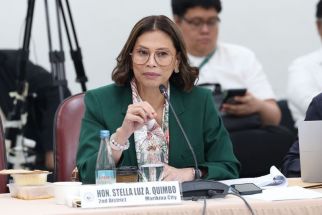Noy rejects 2-year budget validity
MANILA, Philippines - President Aquino has rejected the proposal of Congress to make most appropriations in the 2015 national budget, particularly infrastructure funds, valid for two years until 2016, which is an election year.
The proposal is contained in a special provision lawmakers had inserted in this year’s budget and which Aquino placed on “conditional veto,” along with several other parts of the measure.
The provision is apparently intended principally to lengthen the implementation period for infrastructure projects proposed by senators and congressmen and funded in the 2015 budget.
For the past two years, all appropriations were valid only for one fiscal year.
In the President’s veto message that Budget Secretary Florencio Abad has sent to Congress, Aquino said he was placing certain “general and special provisions” in the budget under conditional veto.
“To ensure their proper execution and consistent with existing laws, these provisions are hereby subject to specific conditions and/or the issuance of guidelines,” he said.
He said there was no need to make appropriations for infrastructure projects and maintenance and operating expenses valid for two years.
“The numerous reforms we have thus far implemented such as early procurement of projects, disaggregation of lump sum funds, General Appropriations Act as a release document, and checkless payment system make implementation of projects not only predictable but timely, if not faster,” he said.
“This assures our people that government agencies are not only ready but more than ever able to efficiently implement projects and deliver public services within the current fiscal year,” he stressed.
While Aquino did not strike down the provision on the two-year validity of appropriations, he ordered state agencies to ensure that priority projects “are executed within one year, thereby allowing the delivery of public services at the soonest possible time.”
The President also subjected Congress’ definition of savings to the issuance of guidelines by the Department of Budget and Management (DBM).
- Latest
- Trending




























